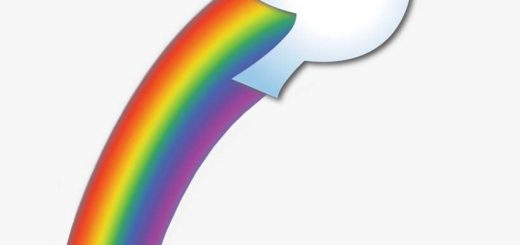Toldos – Knowing That One Doesn’t

As the tale goes, a learned non-Jewish cleric challenges the town’s Jewish populace to have its greatest scholar meet him on a bridge over a raging river, each a heavy weight tied to his foot. The first to be stumped by a question about the Torah will be cast by the other into the waters.
The only volunteer is Shmiel, a decidedly unlearned tailor. He insists he can better the priest and, well, he’s the only candidate.
At the appointed time, Shmiel and his opponent take their positions on the bridge, ball and chain attached to each man’s foot, a crowd on the river bank.
The non-Jewish cleric benevolently offers Shmiel the first shot. “What does ‘aini yode’a’ mean?” Shmiel booms out.
The cleric, not pausing a second, accurately answers: “I do not know!” The crowd gasps and Shmiel, beaming triumphantly, pushes his momentarily confused opponent off the bridge into the raging waters.
Back at the shtetl town hall, Shmiel is roundly congratulated for his ploy. “How did you come up with so brilliant an idea?” he is asked. Radiating modesty, Shmiel explains, “Well, I was reading the ‘teitch’ (the once-popular Yiddish translation of Rashi’s commentary on the Torah) and I saw the words ‘aini yode’ah’ in Rashi’s commentary. I didn’t know what the phrase meant, and so I looked at the teitch and saw, in Yiddish, the words ‘I don’t know’.”
“So I figured,” Shmiel explained sagely, “if the holy teitch didn’t know what the words meant, there was no way some priest would!”
The story is good for more than a laugh. It raises the significant fact that Rashi, the “father of all commentaries,” occasionally, including in our parsha, writes that he “doesn’t know” the reason for something – in our case, about why the Torah has to reinform us that Rivka was the mother of Yaakov and Esav (Beraishis 28:5).
“I don’t know” is a phrase as important as it is rare these days, when self-assuredness seems all too often to stand in for self-respect, when opinions are routinely proffered as unassailable fact, when people are permitted – even expected – to state without doubt what they cannot possibly know to be true.
Rashi’s modest example is one we would be wise to more often emulate. As the Gemara puts it: “Teach your tongue to say ‘I do not know’” (Berachos, 4a).
© 2023 Rabbi Avi Shafran
In addition to my Agudah work and writing for various publications, I also work as a secret undercover agent for an unnamed country. To read about a recent escapade of mine and what it yielded, see my column in the current Ami Magazine, accessible here.



Recent Comments